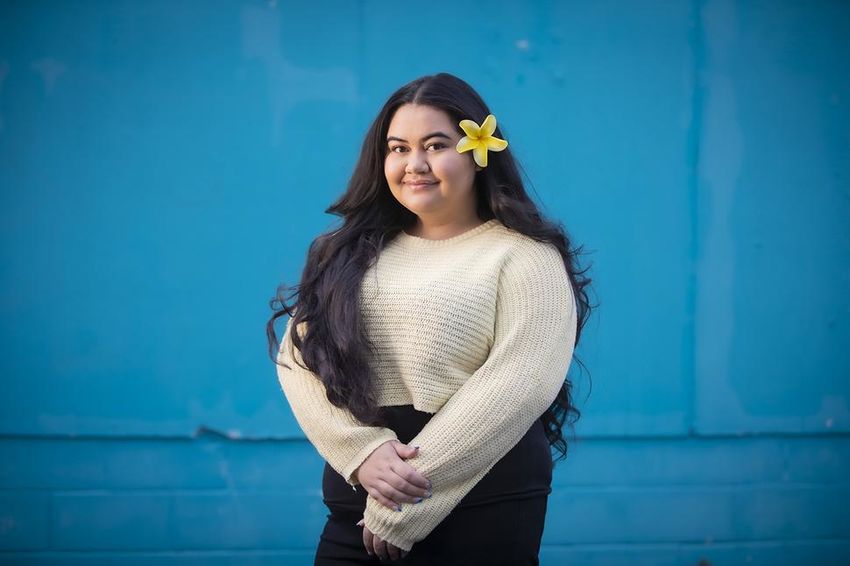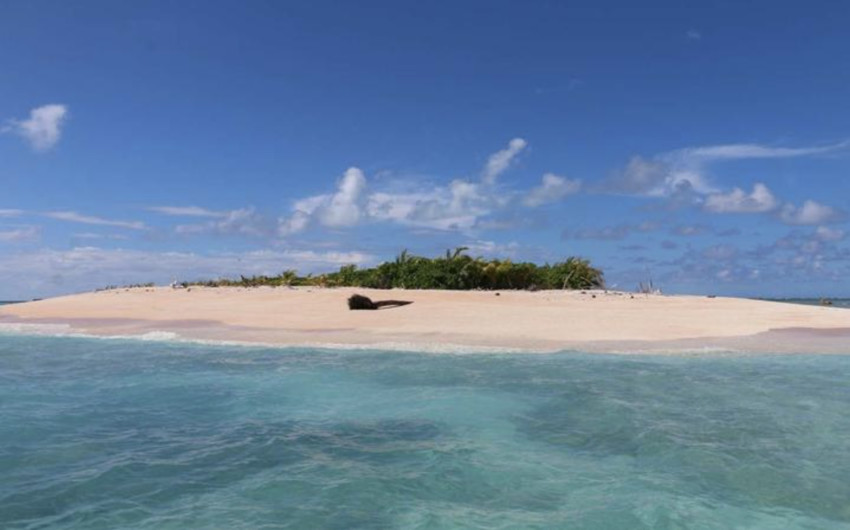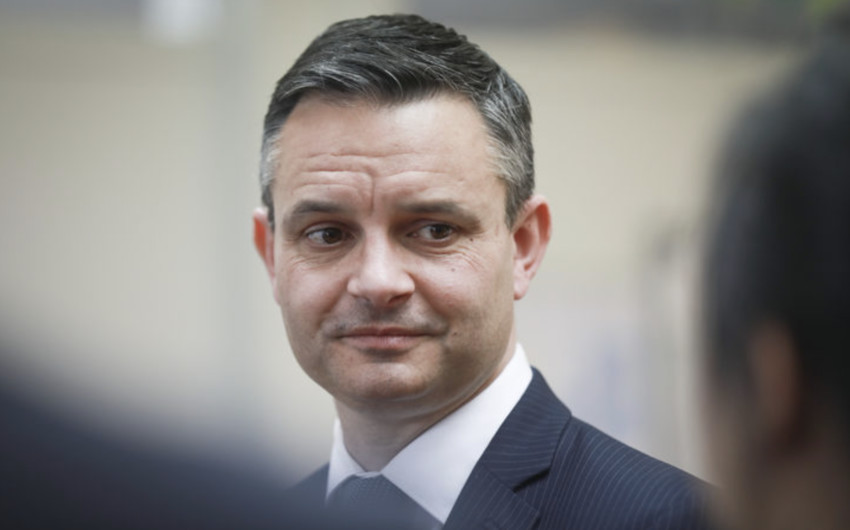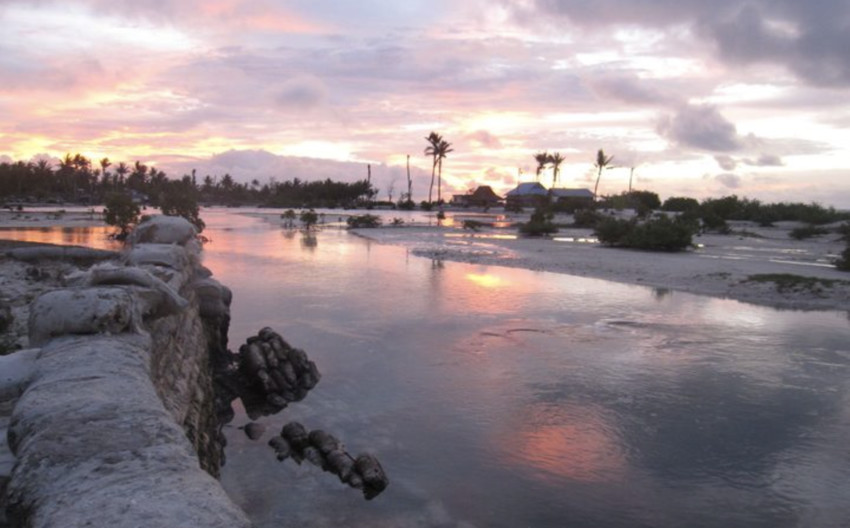Even if all eyes on Chris Rock, climate change continues to rock our world

by Mariner Fagaiava-Muller
In a report released on Tuesday, the United Nations’ Intergovernmental Panel on Climate Change (IPCC) renewed its dire outlook for humanity. But is anyone paying attention? Activist Brianna Fruean offers analysis and reaction.
I sit down with Brianna Fruean, of Sāmoan-Tokelauan heritage, on a brisk Auckland morning. We’re talking about an issue we both know too much about. It’s close to home. Rising sea levels, coral bleaching, increased intensity of natural disasters. This all comes on the tail of warmer temperatures imposed by mankind. “E pala ma’a ‘ae le pala upu - even works may decay but words are everlasting”. Those words were some of many said by Fruean while speaking at COP26 in November, gripening world leaders at a deafening silence. We begin our talanoa with the words used by the IPCC to explain the climate emergency.
Mariner: When you look at IPCC reports generally, the language used to describe the current climate is confronting, but much of the same. So in 2018, it was the ‘doomsday report’. Last year was the ‘code red for humanity’. And this year, it’s ‘things are way worse than we thought’. Are you any less any less or more surprised by having read the report from this year?
Brianna: No, I'm not. I'm not surprised by what they're saying the impact is because in the Pacific, we experienced that impact. And so I feel like if the IPCC report was a movie, it's one that we've seen before in the Pacific, and we continue to see on a day to day basis.
Mariner: What stands out to you?
Brianna: Besides the fact that, you know, it's been labelled as ‘now or never’, it's really important to make a timestamp. And really acknowledge that we can't be having 2050 targets, we can't be stretching out this plan to save the planet, because we don't have that time. The fact that it's been messaged around ‘now or never’, I think is really important. There’s something that also stood out to me, was that for the first time there was mention of colonialism. How that has impacted the climate crisis, and also how it continues to impact the planet.

Mariner: What are some habits that arise from colonisation that you see having an impact on the climate?
Brianna: All of it? Yeah, I think that that was the beginning of the crisis, right? So for centuries, humans lived in harmony on Earth, everyone in their own indigenous lands, taking care of the land. Then there was a boom in exploration and colonialism that led to the industrial era. That's what caused a crisis. I think that that's one of the biggest problems that world leaders have, I feel. No one actually admits, truly and deeply where the problem came from. That's why I think it's so important to mention colonialism, because that's the root of it. That's the root of capitalism. That is the engine room of the climate crisis.
Mariner: Here in New Zealand, what do you make of efforts our government is pledging towards climate solutions?
Brianna: We've positioned ourselves to be leaders in the climate space, relative to our neighbours. But we need to be bringing our emissions down really low. We also want to own responsibility for how we show up to the international arena. I feel like sometimes the Pacific Islands feel a little bit alone in that, like ‘we're always the ones having to call out the big, polluting nations’.

Mariner: Do you think geopolitical tensions get in the way of, I guess, multilateral harmony and helping the Pacific because you have all these big powers, kind of still fighting for a stake in our region. Do you think that's getting in the way of making constructive progress?
Brianna: I feel like climate change has always been political. The loss of land is political. The gain of land is political - anything to do with the environment. I heard this quote from a professor in Australia, who said there's a lot of people in the world that deny climate change is as big as it is. Even if there was a small chance that it wasn't real, playing the game of making it, like making it feel like it's about money is like playing Russian roulette with your kids. That's what it is, right? So the longer that these politicians play the climate crisis game like it's a game of money and power, it's the longer that they play Russian roulette with their kids.

Mariner: It's tricky, because trade offs do need to be made in order to reach emissions targets. Compromises must be put in place. I mean if we look at the closure of the Marsden Point oil refinery, that sparked an uproar. Do we have to be radical?
Brianna: Yes, we do. 100 percent. Every single person on this earth has to be willing to give something up. The thing is about that, even if you choose to not act at all, you will have to give something up. It’s really our choice. Are we going to choose what we give up?
Mariner: So a balancing act is it?
Brianna: It should be coming at the cost of big industries that are causing [emissions]. I've always seen a transition to renewable energy. I do want to mention that in our diaspora, and like the UK, and in the US, it's a lot of our Pasifika communities that work in these fossil fuel industries. Their employers should be responsible for making sure that their trade transitions to renewable energy as well. I feel like with climate justice, people think ‘oh there's so much I have to give up’. It really comes down to the one percent who need to make the big sacrifices. During COVID, the fossil fuel industry was taking so many subsidies. It’s more than just like an Earth versus average citizen battle. It's a battle between the population and the one percent, because they're winning in this crisis. Look at them, they're already looking at space. So when they destroy this planet, they are already making plans to go to Mars.
Mariner: Where do we move from here?
Brianna: We keep going to keep pushing to keep fossil fuels in the ground pushing for a greener transition to renewable energy. We started looking at how we can protect the adaptation of small islands. And try to make climate change ‘the issue’ to talk about. The IPCC report came out and it made no dent in the news cycle, because it was Will Smith and Chris Rock. I think that's very telling of how we are as a society right now. We're just not willing to look up and see actually, we are in a crisis. I feel like that's the big next step, is that everyone must do this work.
--
Cover photo: Viva Magazine/Michael Craig
-
Public Interest Journalism funded by NZ On Air
